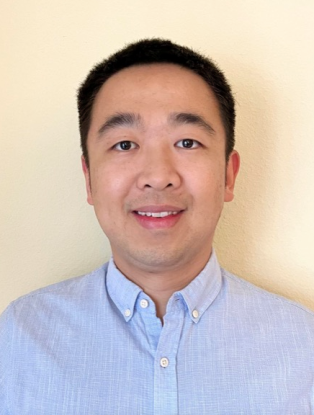
Our research focuses on the interplay between metabolic disorders in the tumor microenvironment and immune evasion, with the goal of identifying potential drug targets and innovative strategies for cancer treatment. My notable awards include the CAS President's Excellence Award and the Duke University Robert J. Fitzgerald Scholar Award. Published work can be found in journals, including Nature Cell Biology, Nature Metabolism, Trends in Cell Biology, Nature Communications, Cell Research, and Cell Reports.
Research Interests
1. Investigating how metabolites modulate tumor immunity and the underlying mechanisms
2. Studying the mechanisms of tumor neural invasion and their effects on tumor progression
3. Developing anti-cancer agents for therapeutic applications
Pulications (Chronologically, #First Author, *Corresponding Author):
L Tan#, T Yin#, H Xiang#, L Wang, P Mudgal, J Chen, Y Ding, G Wang, BW Lim, Y Huang, D Huang, Y Liang, PB. Alexander, KX, E Wang, C Yan, Z Ma, M Tan, QJ Li* & XF Wang*. Aberrant cytoplasmic expression of UHRF1 restrains the MHC-I-mediated anti-tumor immune response. Nature Communications (2024). 15:8569.
T Yin, G Wang, L Wang, P Mudgal, E Wang, C Pan, P Alexander, H Wu, C Cao, Y Liang, L Tan, D Huang, M Chong, R Chen, W Lim, K Xiang, W Xue, L Wan, H Hu, YH Loh, XF Wang* and, QJ Li*. Breaking NGF-TrkA immunosuppression in melanoma sensitizes immunotherapy for durable memory T cell protection. Nature Immunology (2024), 25: 268–28.
Y Liang, C Pan, T Yin, L Wang, X Gao, E Wang, H Quang, D Huang, L Tan, K Xiang, Y Wang, PB Alexander, QJ Li, TP Yao, Z Zhang, and, XF Wang*. Branched-Chain Amino Acid Accumulation Fuels the Senescence-Associated Secretory Phenotype. Advanced Science (2024), 11(2): e2303489.
KX Song, JX Wang, De Huang*. Therapy-induced senescent tumor cells in cancer relapse. Journal of the National Cancer Center (2023), 3(4): 273–278.
C Pan, R Maeso-Díaz, TR Lewis, K Xiang, L Tan, Y Liang, L Wang, F Yang, T Yin, C Wang, K Du, D Huang, SH Oh, E Wang, BJW Lim, M Chong, PB Alexander, X Yao, VY Arshavsky, QJ Li, AM Diehl, and XF Wang*. Antagonizing the irreversible thrombomodulin-initiated proteolytic signaling alleviates age-related liver fibrosis via senescent cell killing. Cell Research (2023), 33(7): 516-532.
CC# Lin, J# Yan, MD Kapur #, KL Norris#, CW Hsieh, D Huang, N Vitale, KL Lim, Z Guan, XF Wang, JT Chi, WY Yang, TP Yao*. Parkin coordinates mitochondrial lipid remodeling to execute mitophagy. EMBO Reports (2022) 18: e55191.
D Huang#, PB Alexander, QJ Li, and XF Wang*. GABAergic signaling beyond synapses: an emerging target for cancer therapy. Trends in Cell Biology (2022) S0962-8924(22)00195-7.
D Huang#, Y Wang, JW Thompson, T Yin, PB Alexander, D Qin, P Mudgal, H Wu, Y Liang, L Tan, C Pan, L Yuan, Y Wan, QJ Li*, and XF Wang*. Cancer-cell-derived GABA promotes β-catenin-mediated tumour growth and immunosuppression. Nature Cell Biology (2022). 24: 230–241.
S Li#, D Huang#, S Shen, Y Cai, S Xing, G Wu, Z Jiang, Y Hao, M Yuan, N Wang, L Zhu, R Yan, D Yang, L Wang, Z Liu, X Hu, R Zhou, K Qu, A Li, X Duan*, H Zhang*, and P Gao*. Myc-mediated SDHA acetylation triggers epigenetic regulation of gene expression and tumorigenesis. Nature Metabolism (2020).2: 256-269.
Y Zhang#, C Li#, C Hu, Q Wu, Y Cai, S Xing, H Lu, L Wang, D Huang, L Sun, T Li, X He, X Zhong, J Wang, P Gao, Z J Smith, W Jia*, and H Zhang*. Lin28 enhances de novo fatty acid synthesis to promote cancer progression via SREBP-1. EMBO Reports (2019) 20: e48115.
L Yuan#, L Zhai, L Qian, D Huang, Y Ding, H Xiang, X Liu, J. W Thompson, J Liu, YH He, XQ Chen, J Hu, QP Kong, M Tan, and XF Wang*. Switching off IMMP2L signaling drives senescence via simultaneous metabolic alteration and blockage of cell death. Cell Research (2018) 28:625-643.
Y Ding#, C Gong, D Huang, R Chen, P Sui, KH. Lin, G Liang, L Yuan, H Xiang, J Chen, T Yin, PB. Alexander, QF Wang, EW Song, QJ Li, KC. Wood*, and XF Wang*. Synthetic lethality between HER2 and transaldolase in intrinsically resistant HER2-positive breast cancers. Nature Communications (2018)9: 4274.
G Wu#, M Yuan, S Shen, X Ma, J Fang, L Zhu, L Sun, Z Liu, X He, D Huang, T Li, C Li, J Wu, X Hu, Z Li, L Song, K Qu, H Zhang*, and P Gao*. Menin enhances c-Myc-mediated transcription to promote cancer progression. Nature Communications (2017) 8: 15278.
X Ma#, L Wang#, D Huang#, Y Li#, D Yang, T Li, F Li, L Sun, H Wei, K He, F Yu, D Zhao, L Hu, S Xing, Z Liu, K Li, J Guo, Z Yang, X Pan, A Li, Y Shi, J Wang*, P Gao*, and H Zhang*. Polo-like kinase 1 coordinates biosynthesis during cell cycle progression by directly activating pentose phosphate pathway. Nature Communications (2017). 8: 1506.
D Huang#, T Li#, L Wang, L Zhang, R Yan, K Li, S Xing, G Wu, L Hu, W Jia, S Lin, C. V. Dang, L Song*, P Gao*, and H Zhang*. Hepatocellular carcinoma redirects to ketolysis for progression under nutrition deprivation stress. Cell Research (2016). 26:1112-1130.
Y Cao#, W Guo#, S Tian, X He, X Wang, X Liu, K Gu, X Ma, D Huang, L Hu, Y Cai, H Zhang, Y Wang*, and P Gao*. miR-290/371-Mbd2-Myc circuit regulates glycolytic metabolism to promote pluripotency. EMBO Journal (2015) 34: 609-623.
X Ma#, C Li#, L Sun, D Huang, T Li, X He, G Wu, Z Yang, X Zhong, L Song*, P Gao*, and H Zhang*. Lin28/let-7 axis regulates aerobic glycolysis and cancer progression via PDK1. Nature Communications (2014) 5: 5212.
D Huang#, T Li, X Li, L Zhang, L Sun, X He, X Zhong, D Jia, L Song, G. L. Semenza, P Gao, and H Zhang*. HIF-1-mediated suppression of acyl-CoA dehydrogenases and fatty acid oxidation is critical for cancer progression. Cell Reports (2014). 8: 1930-1942.
D Huang#, C Li, and H Zhang*. Hypoxia and cancer cell metabolism. Acta Biochim Biophys Sin. (2014).46: 214-219.
Our lab is seeking postdoctoral fellows and assistant researchers with backgrounds in cell biology, molecular biology, and immunology. Ideal candidates will demonstrate independent thinking and research abilities, strong communication skills, and a sincere commitment to their work.
Contact Information
Office: New Medical Building (West Campus) 527
Email: huangde@ustc.edu.cn

